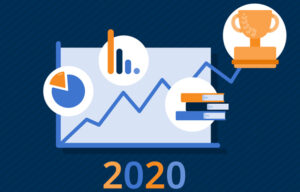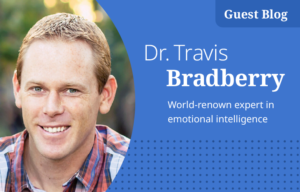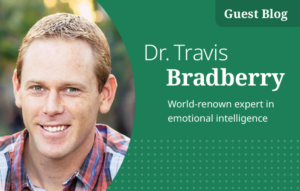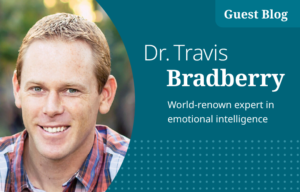Top Ten Accel5 Business Book Summaries of 2020To close out 2020, EBSCO has compiled a list of Accel5’s top ten most-read business book summaries of the year. These exclusive summaries cover timely topics related to leadership, remote work, stress management and diversity and inclusion.
December 17, 2020
Each year, the team at Accel5® compiles the most-read business book summaries of the year. The unique challenges of 2020 fast-tracked new business practices and changed the working world as we know it.
This year’s top 10 list highlights topics related to leadership, remote work, stress management, diversity and inclusion. Keep reading to learn what business professionals around the world are reading to help them tackle challenges, stay productive and maintain soft skills during these unprecedented times.
The First 90 Days by Michael D. Watkins
This updated and expanded version of what has been dubbed the “onboarding bible” offers guidance for adopting a successful leadership transition plan. In The First 90 Days, Michael D. Watkins explains how to diagnose various types of transitions, match a strategy to a situation, and reach a break-even point faster by securing early wins, negotiating success, and building supportive coalitions. It also covers the difference between virtuous cycles that help leaders succeed and vicious cycles that doom them to failure. Each chapter covers a stage that business leaders should embark on during a 90-day transition period.
The 7 Habits of Highly Effective People by Stephen R. Covey
Today’s complex and interdependent world is plagued by numerous common human challenges. These include fear, insecurity, blame, hopelessness, selfishness, conflict, personal stagnation, and a lack of life balance. Permeating all aspects of life, these challenges have a profound impact on personal and professional effectiveness. In his renowned book The 7 Habits of Highly Effective People, Stephen R. Covey proposes a principle-centered approach for addressing such challenges. The Seven Habits are not a “quick fix,” but a long-term commitment to universal principles with the potential to maximize personal and professional success and happiness. These habits, grounded in an “inside-out” approach to change, require mastering oneself (habits one through three) before mastering relationships with others (habits four through six). The seventh habit renews the first six and offers true independence and the capability for interdependence.
Deep Work by Cal Newport
Today’s knowledge worker-based business environment is rife with distraction, due in large part to the proliferation of network tools like email and social media. This distraction fragments our attention and leads us to spend an inordinate amount of time performing shallow work — work that adds little true value. Deep work — activities performed in a state of focused concentration — adds the most value to an organization and contributes to our personal and professional development, success, and fulfillment. In Deep Work, Cal Newport explains how you can overcome distractions, reduce the time you spend on shallow work, and make deep work a more dominant part of your life, leading to greater personal and professional achievement and satisfaction.
The Nonverbal Advantage by Carol Kinsey Goman
Business professionals who fail to hone their nonverbal communication skills are quickly becoming non-competitors in today’s marketplace. New and sophisticated videoconferencing technology requires fluency in body language, as communications are increasingly being viewed instead of read. Law enforcement officers and other professionals receive special training in noticing involuntary gestures and other nonverbal clues that betray discomfort, uncertainty, reticence and other moods. For business professionals, perfecting such skills translates into more successfully negotiated contracts, bluffs called, and deals closed. Carol Kinsey Goman’s The Nonverbal Advantage makes this training easily available to those interested in building their body language reading skills.
Humans read and analyze facial expressions and gestures instantly and unconsciously, which is why first impressions matter tremendously yet may also mislead. In her book, Goman shows how to register and filter those impressions in order to read any situation correctly. Moreover, she explains how to shape one’s own behavior and attitude to make a favorable first impression.
How Will You Measure Your Life? by Clayton M. Christensen, James Allworth and Karen Dillon
In How Will You Measure Your Life?, Clayton M. Christensen, James Allworth and Karen Dillon detail a series of guidelines for finding meaning and happiness in life — both personally and professionally. Through an examination of a series of questions ranging from finding satisfaction in life to staying out of jail, the authors provide insight into theories that aim to help answer the many life challenges that arise every day.
In order to be able to wake up every day feeling lucky about the opportunities that lay ahead, it is critical that individuals build a strategy to do just that. After all, a strategy is simply stating a desired achievement and then planning how to get there.
Just Listen by Mark Goulston
Though the seemingly simple act of communication is as natural to humans as breathing and eating, psychologist Mark Goulston, author of Just Listen, recognizes that oftentimes these vital transactions are met with failure. Whether the task is dealing with a hostile employee, negotiating with an angry spouse, or placating a self-destructing executive, every individual occasionally runs across someone else who is not easily “reachable.” Drawing on a twenty-year-long career in psychology, Goulston offers simple techniques designed to pull angry, upset, difficult people toward the willing listener rather than push them away. The result is a communications handbook applicable to every sector of adult life, from dealing with friends and business associates to connecting with lovers, parents, and defiant children.
We Can’t Talk about That at Work! by Mary-Frances Winters
Workplace conversations about polarizing topics can negatively impact productivity, engagement, collaboration, and retention, but these taboo ideas must be discussed to effect meaningful change in the world and the workplace. Many leaders want to encourage authentic conversations among their employees on topics such as racism, xenophobia, Islamophobia, classism, and homophobia to foster mutual understanding, but they lack the competence to do so effectively. In We Can’t Talk about That at Work!, Mary-Frances Winters shows leaders how to create safe spaces to engage and encourage the open dialogues that are necessary to build trust and compassion in the workplace.
The Time Cleanse by Steven Griffith
Time is our most valuable, precious, and limited commodity — and the key to lasting happiness and success. As illustrated in The Time Cleanse by Steven Griffith, the Time Cleanse™ is a proven system that shows you how to do more, get more, and be more by changing your relationship with time. It will help you get back 20 hours a week or more of your free time for your life, business, and relationships. Learn how you can squeeze every drop of productivity out of each hour of your day so you can gain the freedom to do what you want when you want.
90 Seconds to a Life You Love by Joan I. Rosenberg
Confidence isn’t contagious, but in 90 Seconds to a Life You Love, Joan I. Rosenberg provides a simple formula you can use to develop confidence, emotional strength, and self-esteem. By choosing to be present, being willing to tolerate difficult emotions, and riding one or more 90-second waves of bodily sensations, you can connect to the vitality of life. In only 90 seconds, the Rosenberg Reset formula can help you accelerate sustained personal transformation and build the authentic life you want.
The Emotionally Intelligent Leader by Daniel Goleman
Daniel Goleman’s articles in Harvard Business Review introduced the business world to the idea of emotional intelligence. The Emotionally Intelligent Leader brings together three of Goleman’s most well-known articles and highlights the links between emotional intelligence, focus, and measurable business results.
When it comes to leadership effectiveness, research has found that emotional intelligence is twice as important as technical skills or IQ. The higher an outstanding performer ranks in an organization, the more that emotional intelligence is the reason for his or her success.
Accel5 features thousands of book summaries, videos, and articles covering dozens of critical soft skills topics from top business leaders. Each lesson only takes a few minutes to complete — perfect for your busy schedule.



